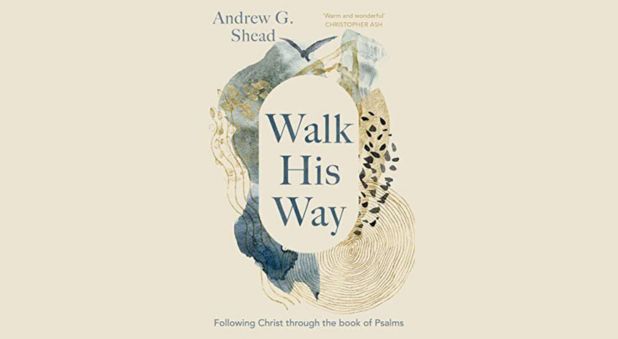There is a large picture of Jeremiah next to my bed. The original painting is by Rembrandt. The solitary Jeremiah stares downwards, head in hands, as he grieves the loss of Jerusalem to the Babylonians. The king, with his eyes put out, flails in the background, while flames and warfare complete the picture. All is lost. The prophecy was real, the land has gone, and the people are adrift. But he knew all that would happen. Jeremiah that is, and well, of course, God.
I feel shadows of that sorrow when I walk out my front door and into my suburb, or in fact if I take the time to look at my own heart. The city does not follow God’s way and my heart likewise often prefers its own path. We need help, which is why I’m thankful that Andrew Shead wrote this giant of a little book. I need help knowing, as Shead writes, how to travel “through lament before it ends in praise”. And to know better the God who walks with us.
Psalms are poetry
I also need help to slow down – I click, click, click at high speed. Shead comments on this, as the book begins: “Psalms are poetry, and the first purpose of poetry in any language is to make the reader slow down”. There is an art to reading poetry; the words have been carefully crafted. So, he writes, “let’s ‘go slow’ for a while”.
Shead has wonderfully transformed his Bible talks from CMS’s 2022 Summer School into a book. With real warmth and intellect, he opens up what he calls “Israel’s hymnbook” in a way that helps us both learn and reflect. It entreats us to do the theological thinking, but you’ll find it is also personable and packed with application.
This book was a place for me – tired and overly busy, probably like you, too – to find peace amid structure and patterns and judgement and tenderness and welcome. I truly learnt to feel again the joy – the outrageous claim! – of being a person within the group God calls “my people”.
What questions do you have
The Psalms, with Shead’s help, can answer our questions. How do we deal with the tension between reality and appearance? How do I avoid being lightweight chaff? How can I know for sure that I’m on the right path? What does that even look like? How can you suggest that my burden “... is a gift from God”?? How do lament and praise and even thanksgiving really sit alongside each other??
The Psalms teach us to call out, like the king, “I take refuge! Protect me!” to a God who is the sanctuary of all of humanity, of all times, of all fears and failures and fights. Who leads us out to rejoicing in his kingship, his complete supremacy, and in his great and wonderful love for us – “His love endures forever”.
The picture and story of Jeremiah that is so often in my line of sight at home, is not therefore one of only sorrow and flames. The Psalms weave us through a much larger story of redemption. It’s a tuneful rollercoaster ride, though in fact the way is entirely straight. We are called to obey the Lord and we are shown how to delight in him, and we learn here how this God chooses to walk with us every step, as we follow behind his son Jesus, to indeed walk his way.
Sally Swan is a care advisor with Anglicare.






















